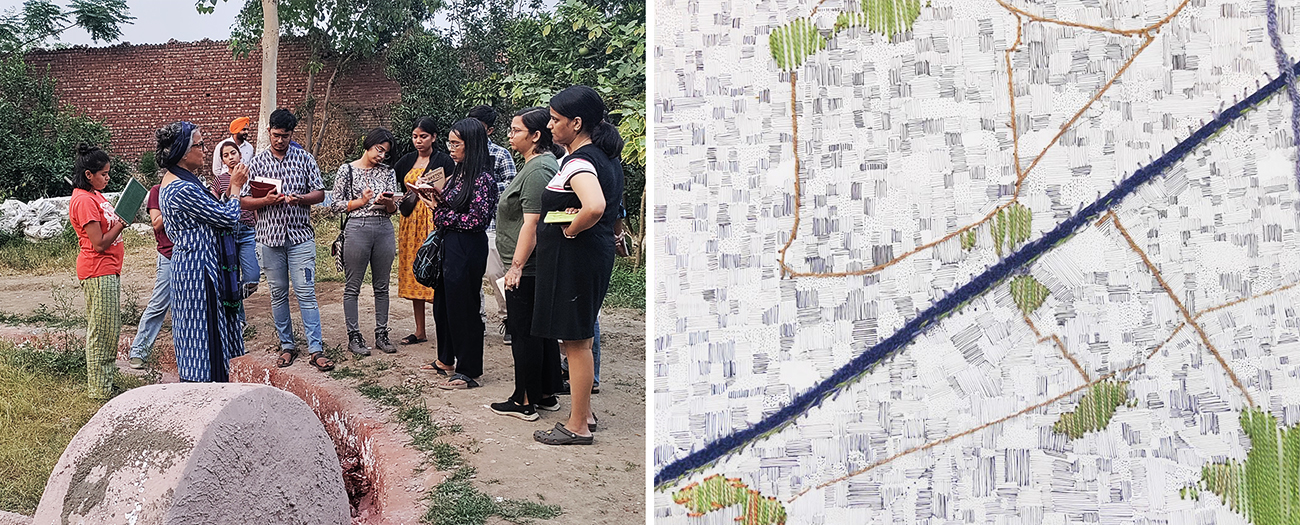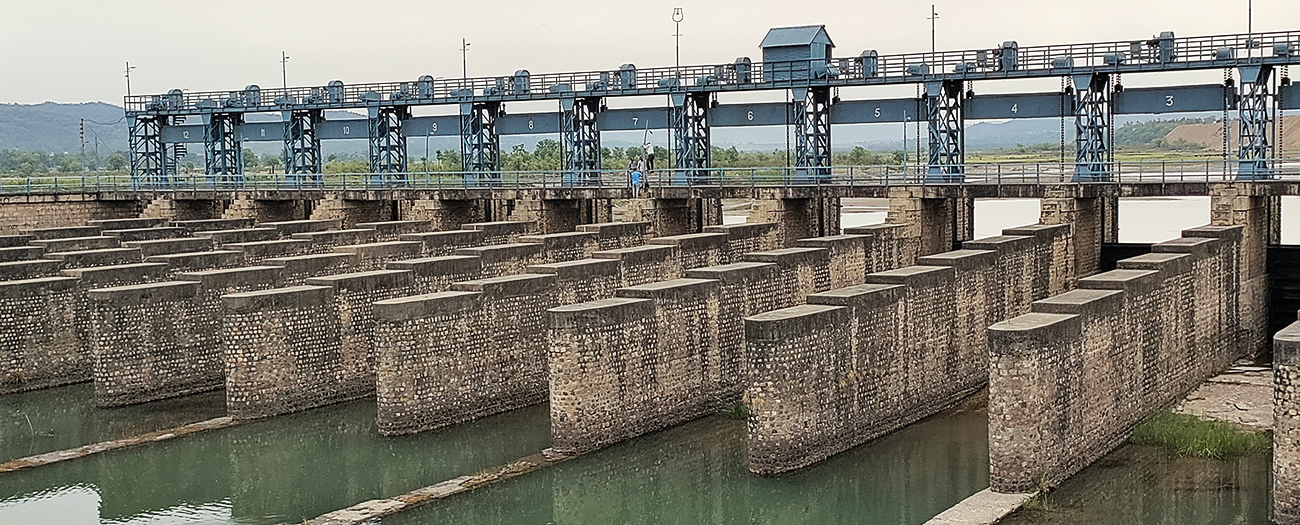The course was held in Nawanpind, a village in the Gurdaspur district of Punjab, India and was a part of CEPT University’s summer school curriculum. Through the course participants were invited to chart out histories pertaining to the settlement’s planning, architecture, socio-cultural, economic, and political layers.

The course was structured in three modules over two weeks. Through the first and second module, experts were brought in to talk about aspects of historical relevance, conservation, the Green Revolution, the Sikh faith, brick technology, and ethics in community engagement. This formed a crucial backbone to the course as the participants began absorbing and reading the many layers of the settlement. ‘Module Three’ was structured to assist students in producing an artwork for the ‘Village Mela’ held on 3rd June, the stark event of this summer school course.

In addition to this, input sessions, discussions, and intermediate reviews were regularly scheduled by the tutors to help direct students in their research projects. At the end of the summer school, the cohort reflected on the challenges and insights of the community engagement session, while discussing learnings over the two weeks and the ways forward for each participant’s research project.


